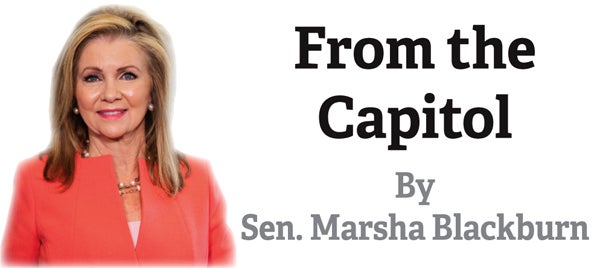Local government needs more ways to interact with citizens
Published 12:50 am Saturday, July 19, 2014
Carter County is famously argumentative, especially when it comes budget time.
Several persons showed up last Monday evening for the public hearing on the county budget. Some attended with the intention of speaking during the public hearing, but because they had failed to submit a written request to speak before the meeting, they were not allowed to say anything.
Some of the citizens felt they were denied their due process, and should have been allowed to speak despite the written request rule.
Rules are necessary. No doubt, the written request was inserted in the rules to bring some order to the process, but some believe it was also part of a plan to limit public comments.
Carter County citizens have a long history of being blunt and outspoken. Like it or not, citizen engagement is coming of age.
Taxpayers want to know how their money is being spent, and they want some input in the process. Gone are the days when the public rubber stamps every decision made by County Commission. Taxpaying citizens have questions, and they want answers to those questions.
Simply dismissing them from the process because there are rules isn’t going to work.
The time-worn public hearing is certainly not the only way to interact with the public, but it is the best way to reach every citizen.
Often, public hearings are dominated by people with narrow agendas and they typically attract complainers and people who want to vent rather than attracting the ordinary citizen and his or her voice.
Commissioners’ distaste for public hearings and public comments at county meetings may stem not from the fact of public engagement, but from the public hearing model — the harangues, the parade of the same half-dozen or so faces at every public meeting, and the angry exchanges with frustrated citizens.
However, the Commission should do everything it can to engage the public in its decision making, rather than limit their input.
We would like to suggest that in the future, community forums be scheduled as well as using social media to reach younger residents. An online site could be set up to solicit ideas and encourage public feedback on issues. There are opportunities to involve the community in a whole gamut of ways that have not been traditionally done.
Commissioners should be more engaged with the community. They need to come up with ways to help residents understand the complexities of what public officials have to face, but also to involve them in the process. Residents need a way to weigh in on issues confronting their county and city.
We feel that if commissioners were doing their homework before the budget process, they would host meetings in their districts to inform their constituents of the issues. They would earnestly seek their ideas and opinions and weigh them when making budget decisions.
For instance, we know some of how the commissioners and school board feel about building a middle school for the Stoney Creek community, but what do the citizens of this county want? Do they want a middle school? Do they feel it is needed? If so, are they willing to pay for it with higher taxes? Do they think more money should be allotted for road and bridge maintenance?
Local government needs to engage the public more in making decisions and frame things in a way that compels people to turn out.
For instance, if you say, “we want to talk about bonds,” people yawn. But, you’ll get a different reaction if you said, “We have $1.5 billion in capital needs, but only $400 million in money, so how do we spend it?”
Like it or not, both city and county officials are being pushed to listen to the public, because citizens are demanding it. They should be heard and every means should be made to hear them. After all, they are the ones paying the bills, and it was their votes that got commissioners elected.


